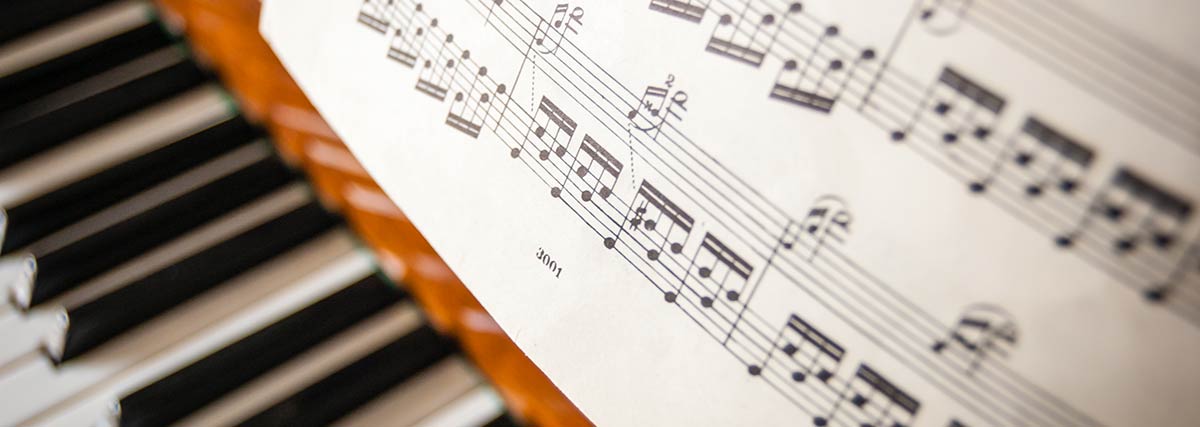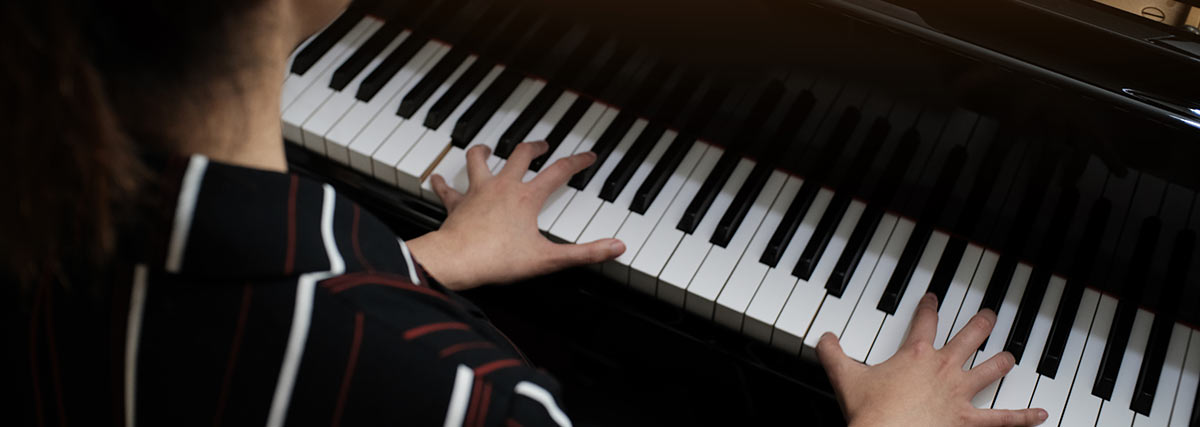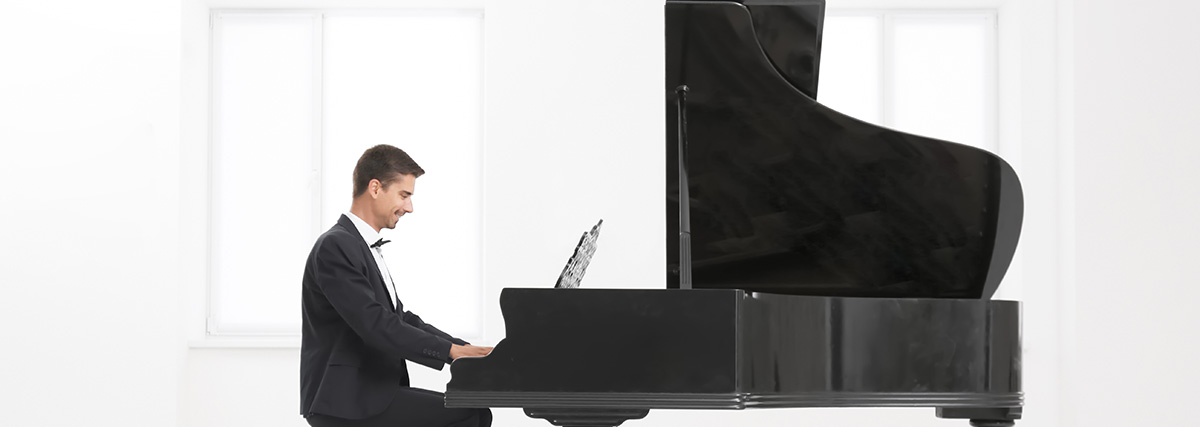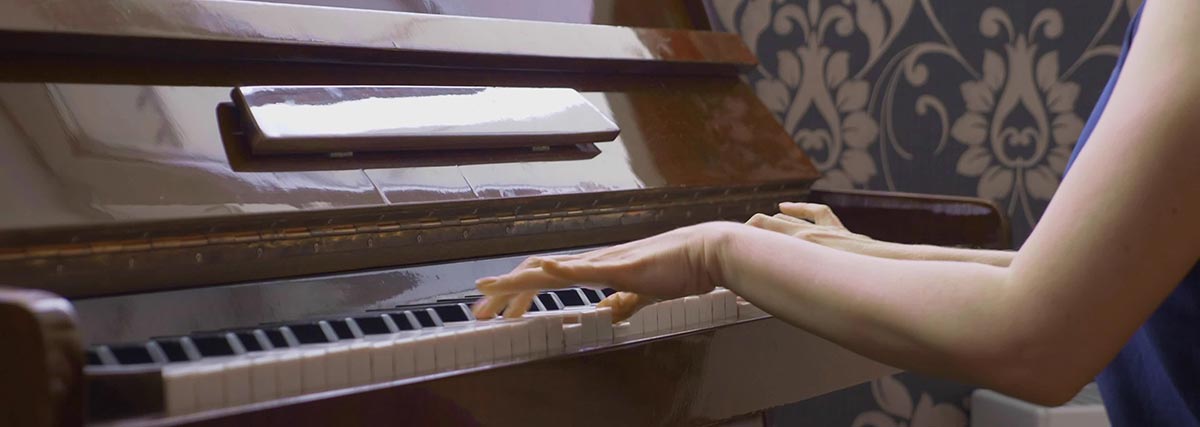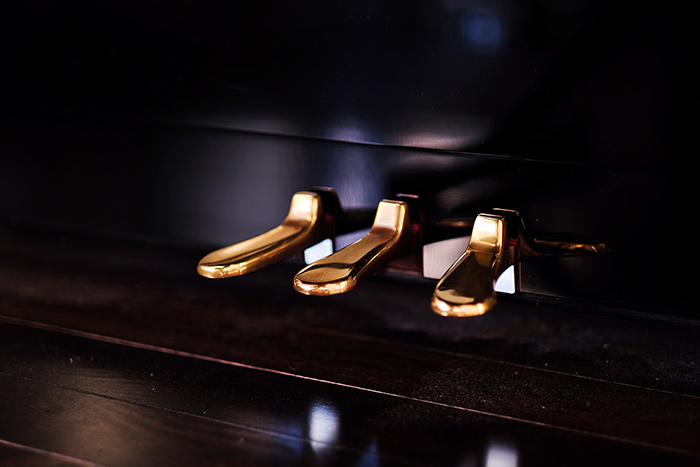As a piano student, there are times when it feels almost impossible to learn pieces that you want to perform or play because they are too difficult for you or because they are too far beyond your skill level. Learning pieces that are beyond your capabilities can be extremely frustrating at times if you do not approach them with the proper mindset and skill level.
Every piece has a different level of difficulty depending on how it is composed; there is a right time and right level to learn them, as it is difficult to learn an intermediate level piece when you are still a beginner. So, how do you learn a piece that is above your skill level? What can you do if you find a piece too difficult to study and fully comprehend? The solution is to improve your skill and knowledge of piano playing.
Learn the Fundamentals of Music
Reading and learning new music pieces can be tricky and difficult if you don’t know the fundamentals of music. Knowing music theory will undoubtedly help you learn faster and read notes more efficiently. Learning music is just like learning a new language, at first it may feel completely foreign but after learning and practising note reading for some time, it will feel natural when reading new piano pieces. Of course, music, like language, must be practiced frequently in order to become fluent and proficient. The more you’re exposed to it, the easier it is to understand and interpret.
Music fundamentals begin with three major elements: melody, harmony, and rhythm. These three components will help you understand what is written on a music sheet. It is similar to the musical alphabet in that it is impossible to decipher written music without it.
Practise Correctly
We frequently read or hear that the key to mastering a skill is to practice it on a regular basis for thousands of hours, treating it as if it were part of our daily routine. Because the more we do it, the more accustomed we become to it. True, but why don’t some people make much progress after months, if not years, of practice?
The answer is that they simply play the entire piece regardless of their mistakes rather than practising everything correctly and precisely. When practicing a new piece, you want to avoid making mistakes. It is preferable to begin slowly and gradually increase the tempo. It makes no difference how slowly you play the piece as long as you try to be precise and hit every note. This method allows you to become accustomed to correctly executing passages.
Do Not Forget to Do Exercises
When it comes to improving your piano playing skills, piano exercises are essential. They are extremely beneficial in terms of improving your technique and overall piano playing ability. As a pianist, you will encounter a plethora of different musical passages, and practicing exercises on a regular basis will help you to execute new passages efficiently. There are numerous piano exercises available, such as Schmitt Preparatory Exercises, Hanon 60 Virtuoso Exercises, and, of course, Piano Etudes by various composers. These finger exercises were designed to improve finger strength and dexterity. As a result, if you want to improve your overall piano playing ability, these are essential.
Listen to Your Playing or Record Yourself
It is critical to know how to listen to yourself while playing in order to deliver your sound more beautifully. We can get so caught up in trying to execute a technical passage correctly that we forget to listen to ourselves. Listening to yourself allows you to hear and know how to play phrases and passages the way they should be played. If you find it difficult to listen and play at the same time, play slower so that you can listen to every note you play. You can also ask someone to listen to you or record yourself so that you can listen to yourself carefully.
Slow Practice
Slow practice is the key to learning quickly. Yes, you read that correctly. Many people are unaware of the wonders that slow practice can provide. Slowly practicing allows you to carefully execute every single note correctly, reducing the chances of making mistakes, which is especially important when learning a new piece of music. Learning a new piece for the piano is similar to a child learning to run; the child must first learn how to walk properly before being able to run. Slowly practicing allows you to carefully listen to your playing, which aids in the improvement of your sound production.
Enrol in an Excellent Music Institute
As a piano student, there are numerous advantages to taking piano lessons from a reputable music school. Being under the tutelage of a professional piano teacher is the most effective way to improve your piano playing because a piano teacher has the knowledge to teach you all of the techniques that you need, from maintaining proper posture while playing to sound production and interpretations, all of which contribute to enhancing your musicianship. One of the benefits of learning from a piano teacher is that the instruction can be tailored to your specific learning style.
Improving your piano playing can be accomplished in a variety of ways; you simply need to find the method that works best for you. Being guided by an instructor will assist you in determining which learning method will assist you in becoming a proficient piano player in the most effective and enjoyable manner. Learning to play the piano is enjoyable, especially when you see your skill improve. Piano learning is unique to each person, so no matter how big or small your progress is, you deserve to celebrate it because you have put in the time and effort.

